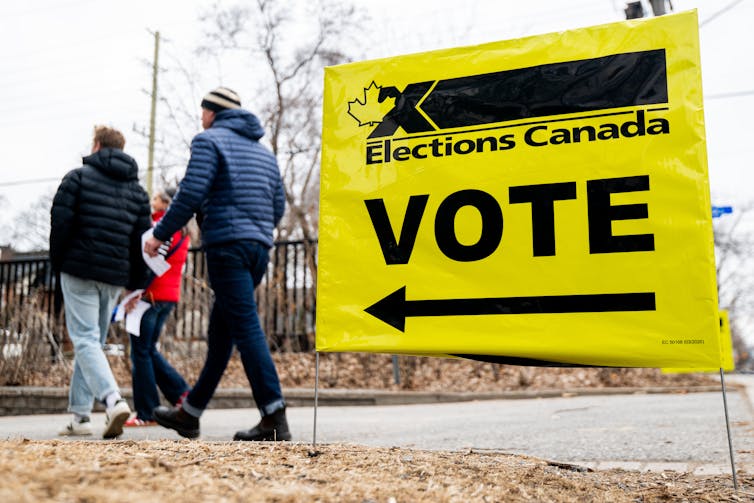In today’s digital age, **social media has transformed the landscape of political discourse**. With influencers at the forefront, the lines between political commentary and campaigning have become increasingly blurred. This evolution poses significant implications for elections, voter perceptions, and the accountability of political messaging.
The emergence of online content creators has given rise to a new profession where **social media influencers are key players** in shaping political narratives. They engage in promoting politicians, encouraging voter turnout, addressing social issues, and disseminating political news. However, this power is a double-edged sword, as influencers can also unwittingly or deliberately contribute to the spread of **disinformation** and foreign interference campaigns.
Our recent report, **Influencers and Elections: The Many Roles that Content Creators Play in Elections**, delves into these complexities and examines the intricate web connecting influencers, advertisers, media entities, and lobbyists—and how these relationships can sway electoral outcomes.
Influencing Politics: Beyond Traditional Boundaries
Today’s influencers have evolved to embody multiple roles within the realm of political communication. They operate similarly to **celebrities**, **journalists**, and **activists**, seamlessly transitioning from endorsing a candidate to sharing personal commentary. Their content may be sponsored, but influencers can also independently express their political views, often without any formal ties to a political entity.
This **lack of clarity** surrounding influencers’ motivations challenges voters’ ability to discern between authentic support, strategic marketing, and credible journalism. As a result, regulating influencer-generated content becomes ever more difficult.
Moreover, **political campaigns are increasingly leveraging influencers** to access demographics that traditional media struggles to reach. By connecting with their audiences through personalized and relatable content, influencers are poised to amplify campaign messages and engage voters more effectively than conventional advertisements.
Unlike traditional figures, influencers cultivate a unique sense of intimacy and direct engagement with their followers. Their portrayal of aspirational lifestyles makes their content feel authentic, often leading audiences to perceive sponsored messages as genuine endorsements.
The Double-Edged Sword of Authenticity
The interplay between personal expression and strategic advocacy renders influencers a powerful force in political messaging. However, the ease with which they can shift between roles complicates regulatory efforts, as distinguishing between **sincere support** and **paid endorsements** becomes increasingly difficult. For instance, influencers may align themselves with a politician out of genuine passion or as part of a calculated strategy without adequately disclosing these affiliations.
While Canada’s election laws mandate transparency for paid advertising, nuances around informal collaborations often go unregulated, leaving users uncertain about the authenticity of influencer endorsements. This lack of clarity can have profound effects on voter perception and decision-making.

THE CANADIAN PRESS/Spencer Colby
Rethinking Journalism in the Age of Influencers
With the rise of influencer-led news, traditional journalism is undergoing a transformation, as influencers now frequently share news content, conduct interviews, and provide commentary. For many young people, **influencers have become their primary news source**, often eclipsing traditional journalism organs.
A shift in Canadian media dynamics may have accelerated following the **Online News Act** of 2023, which restricted news access on platforms like Meta, creating a void that influencers have swiftly filled.
However, **many influencers lack journalistic training**, accountable practices, and editorial oversight, which can lead to the **unintentional dissemination of misinformation**. Others may be co-opted into disinformation campaigns that exploit their credibility to spread false narratives under the guise of personal opinions.
This erosion of boundaries has prompted politicians and journalists alike to adopt influencer-like strategies, blurring the lines between content creation and political campaigning.

(Shutterstock)
Deciphering Influencer Content: A Critical Perspective
Influencers operate in a **multi-faceted** capacity within the Canadian political landscape—from endorsing candidates to crafting political narratives. As they straddle the line between independent reporting and marketing, the question arises: **What constitutes authentic support versus orchestrated campaigns?**
Understanding the distinction between genuine grassroots movements and paid propaganda is crucial for interpreting influencer-driven content. Media literacy strategies must evolve to help audiences navigate this complex terrain, encouraging consumers to critically evaluate what they consume.
This includes querying whether an influencer is sponsored, scrutinizing their information sources, and avoiding reliance on a narrow band of like-minded influencers.
The Need for Regulatory Evolution
Current regulatory frameworks **are ill-equipped** to address the unique challenges posed by influencer-generated political content. Traditional election laws were crafted for a media-centric environment, yet this reality has shifted dramatically in the digital age.
The intricacies of influencer marketing have created **significant loopholes**, allowing political campaigns to circumvent ad spending and transparency regulations. Policymakers face the challenge of striking a balance between regulating influencer-led political advertising and safeguarding free expression rights.
It is essential that Canada’s regulatory framework adapts to encompass clear definitions of political messaging, alongside robust disclosure requirements to illuminate the **dark corners** of influencer collaborations with political entities.






